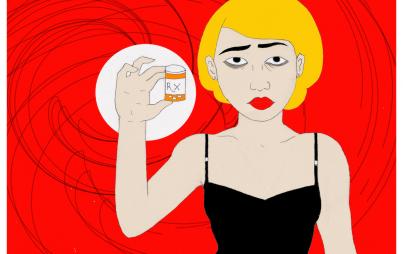
Photo by Carolina Heza on Unsplash
During Mental Health Awareness Month, we place a lot of emphasis on identifying symptoms and taking the first steps to get treatment. For many consumers, though, it's challenging to find a provider who is a good fit. Patients in rural areas often experience problems with that—there may be few options, and they may come with waiting lists or steep co-pays.
It’s hard for anyone, anywhere, to find quality mental healthcare. Accessing those resources becomes exponentially harder for those who are low-income, uninsured, or underinsured.
Even finding providers who take Medicare or work on a sliding scale narrows options considerably, often forcing patients to see providers who are less-equipped to treat them. Providers who are willing to see these patients also have long wait-lists.
Add in other barriers, like transportation to appointments and prescription co-pays, and it’s plain to see that the already complex world of mental health treatment turns into a maze for those who lack substantial income and insurance. This is especially important now as many are dealing with the mental health effects of the Coronavirus and don’t know where to turn for treatment.
These challenges multiply in rural areas.
When I moved from a medium-sized city back to my small southwest Virginia hometown, one of my biggest worries was finding a mental health provider. I told myself that my resourcefulness would see me through, that with creativity and communication and persistence, I could access the care I needed.
Instead, I encountered a series of disasters which mostly involved hour-long drives for brief appointments with inexperienced and unqualified providers. When my primary care doctor said there was a new psychiatrist in town who took Medicare patients, I eagerly accepted the referral. I was so pleased when I first met Dr. Andrews. She was young, friendly, and open to creative solutions like reiki for PTSD and salsa dancing for anxiety. We had similar tastes in music and would sit in her office, geeking out about ambient albums. She always had time for me, and during a particularly rough time, she called me every day, even on weekends, until I got better.
And yet, there was something very wrong: she wasn’t listening to me.
She repeatedly would wear me down into trying medications I knew I didn’t tolerate well. Worse than that, she was headstrong about talking me out of a medication I did need. At every appointment, she would lecture me about taking Zoloft, an antidepressant that’s kept me alive since I was 15. I felt that I wasn’t seeing a professional, but just another person stigmatizing psychiatric medication. While the practice of scolding those who take psych meds is so common as to have a name—med shaming—I never thought I’d experience it from a psychiatrist.
Antidepressants contribute to mania in some bipolar patients, so I understood why she might have initially been hesitant to keep me on the medication. But, being bipolar II, I’ve never experienced full-blown mania. My symptoms are mostly related to depression. I, my therapist, and my entire medical history attested to the fact that my lows were far more dangerous than my highs—and being off Zoloft was much more dangerous than being on it.
At one point, Dr. Andrews had me off Zoloft altogether, and, after much self-advocating, she agreed to prescribe it again. Things improved right away. It was evident to anyone who knew me that I became myself again. I had energy and humor, and I was writing again. Dr. Andrews even commented on the remarkable change.
But even though she saw me, sitting across from her, smiling and alert again, she discouraged the Zoloft every time I saw her.
If I felt agitated or anxious or had trouble sleeping, she’d tell me it was the Zoloft. I feared she’d stop prescribing it. I researched online pharmacies. I stayed up late reading the same case studies my doctor had read, finding all the ways in which I differed from those patients. I wanted to switch psychiatrists, but I had no other options.
When Dr. Andrews announced that she was leaving, I felt panic at the thought of having to find another provider. Despite our conflict, Dr. Andrews had provided stability and attentiveness. She was always up on the research and vigilant about necessary bloodwork. But even as she offered that stability, she brought shame and anxiety to something that helped my life.
The weight of that shame became apparent when I started looking for a new doctor. I rehearsed how I would ask the doctor to prescribe Zoloft. I planned coping strategies for the lectures I anticipated. I bookmarked the online pharmacies. They filled Dr. Andrews’ vacancy, and I went in, prepared to do battle once more.
But a funny thing happened.
I told the new doctor I’d been feeling depressed. Right away, she suggested raising my Zoloft.
And just like that, my shame fell away.
Anxiety is a symptom of mental illness. It also mirrors what it’s like to live with the uncertainty, not just of symptoms, but the ability to access adequate care, the powerlessness that comes when it’s not enough to advocate for yourself time and again, and all the baggage and shame we bring from one doctor to the next. We never know when our mental illness will disrupt our lives, and we never know when treatment for that mental illness will disrupt our lives either.
What I do know is this: I’ve been on the increased dose of Zoloft for a week now. I couldn’t have written this before.








